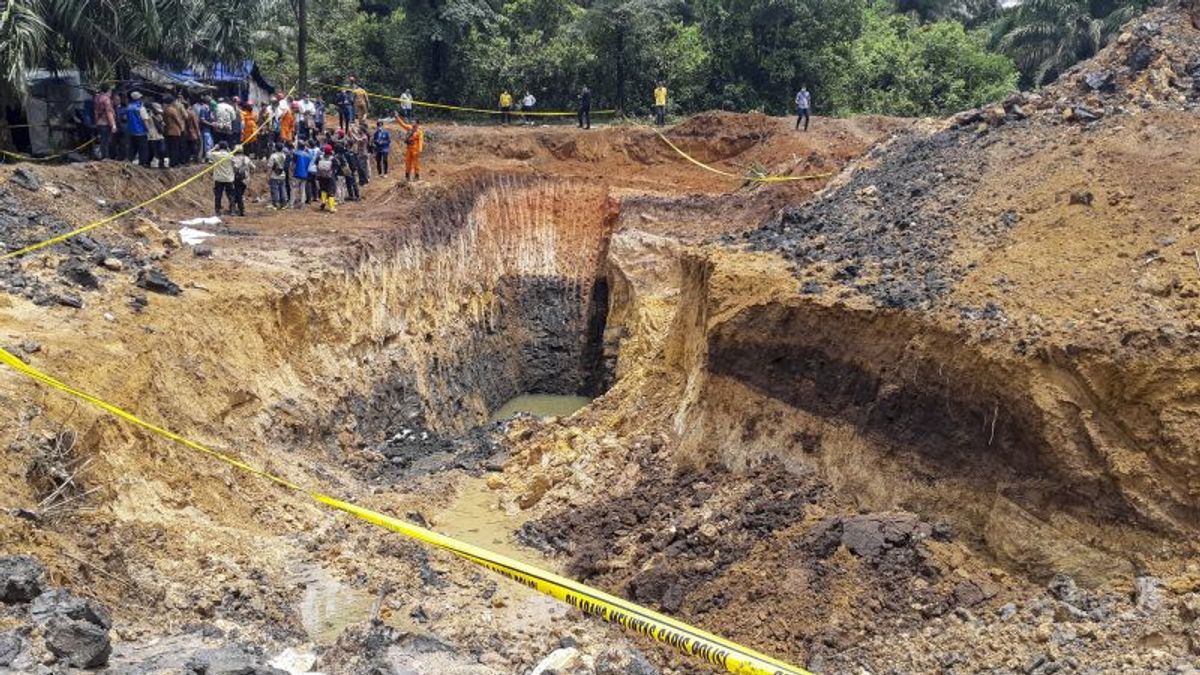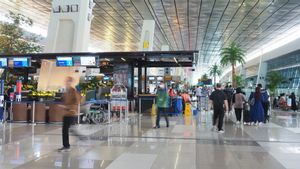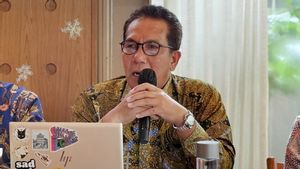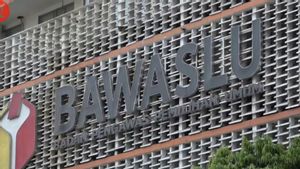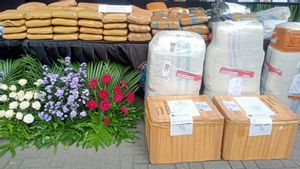JAKARTA - The Ministry of Energy and Mineral Resources (ESDM) noted that there were 2,741 unlicensed mining locations (PETI) spread throughout Indonesia.
Of these, 2,645 locations are mineral mining and 96 locations are coal mines.
One of the largest PETI locations is in the Province of South Sumatra (Sumsel).
It is known, PETI is an activity of producing mineral or coal carried out by the community or company without having a permit, does not use good mining principles, and has negative impacts on the environment, economy and social.
"PETI is an activity without a permit and triggers environmental damage. This activity also triggers horizontal conflicts within the community," said Director of Engineering and Environment for Mineral and Coal, Ministry of Energy and Mineral Resources (ESDM) Sunindyo Suryo Herdadi in a written statement, Tuesday, 26 July.
In addition, PETI also ignores obligations both to the state and to the surrounding community.
"They will of course ignore the obligations that are the responsibility of the miners as they should. They are not subject to the obligations of IUP and IUPK holders to formulate community development and empowerment programs, including the allocation of funds," said Sunindyo.
He emphasized that the government would not remain silent in dealing with PETI.
"Efforts have been made, among others, by taking an inventory of PETI locations, structuring mining areas and supporting regulations to support people-based mining, data collection and monitoring by the Mining Inspector, proposals for determining community mining areas (WPR) in accordance with the proposals of local governments, to law enforcement efforts," he explained. .
From a regulatory perspective, said Sunindyo, PETI violated Law Number 3 of 2021 concerning Amendments to Law (UU) Number 4 of 2009 concerning Mineral and Coal Mining.
Article 158 of the Law states that people who carry out mining without a permit are sentenced to a maximum imprisonment of 5 years and a maximum fine of Rp. 100,000,000,000.
This includes anyone who has an IUP at the exploration stage, but carries out production operations, shall be punished with imprisonment as regulated in Article 160.
Article 161 also stipulates that any person who accommodates, utilizes, performs processing and/or purification, development and/or utilization of transportation, sale of minerals and/or coal that does not originate from IUP, IUPK, IPR, SIPB holders or other permits will sentenced to imprisonment.
"PETI also has an impact on the country's economy because it has the potential to reduce Non-Tax State Revenue (PNBP) and tax revenue. In addition, it will trigger economic inequality in the community, cause fuel shortages, and potentially increase the price of public goods," said Sunindyo.
In terms of the environment, PETI will cause environmental damage, can cause disasters, disrupt the productivity of agricultural land and plantations, and can cause river water turbidity and water pollution.
"In general, the former PETI land with the open-pit mining method that is no longer operating leaves voids and puddles so that the land can no longer be used properly. All PETI activities do not have acid mine water treatment facilities, so puddles and water flowing in around PETI is acidic. This has the potential to pollute river water. Another danger posed by PETI is that coal exposed directly to the surface has the potential to cause self-burning, so that on a large scale it has the potential to cause forest fires, "he concluded.
The English, Chinese, Japanese, Arabic, and French versions are automatically generated by the AI. So there may still be inaccuracies in translating, please always see Indonesian as our main language. (system supported by DigitalSiber.id)
